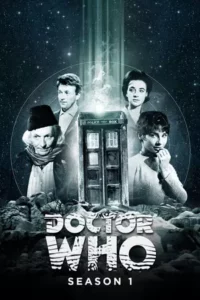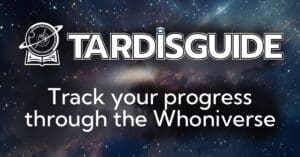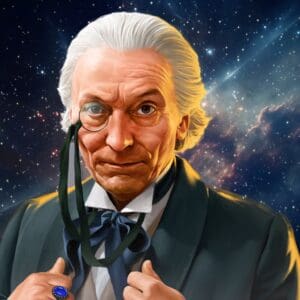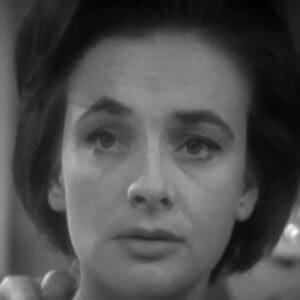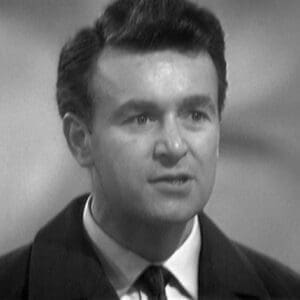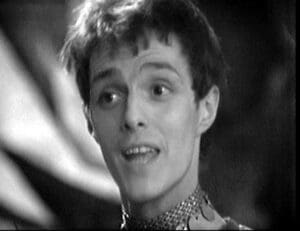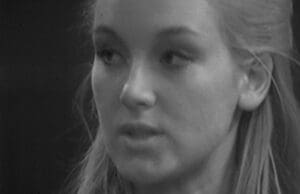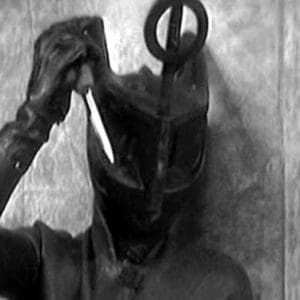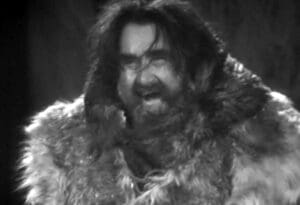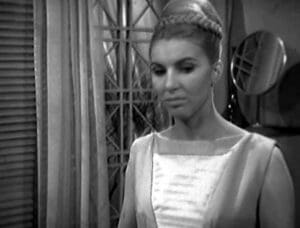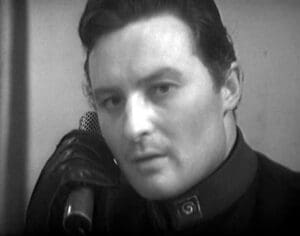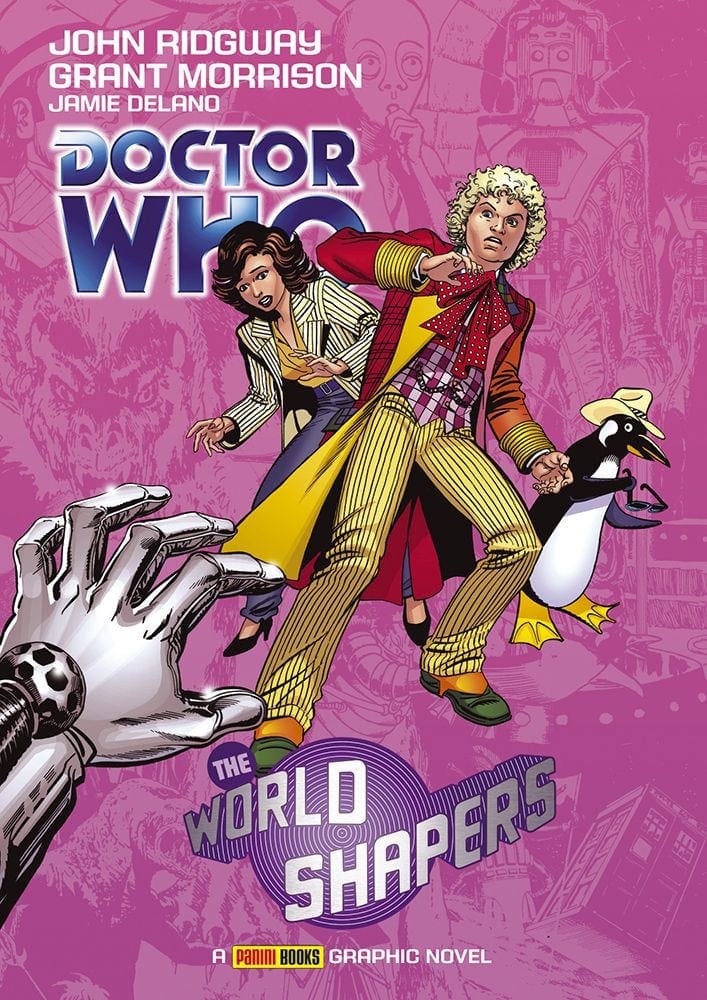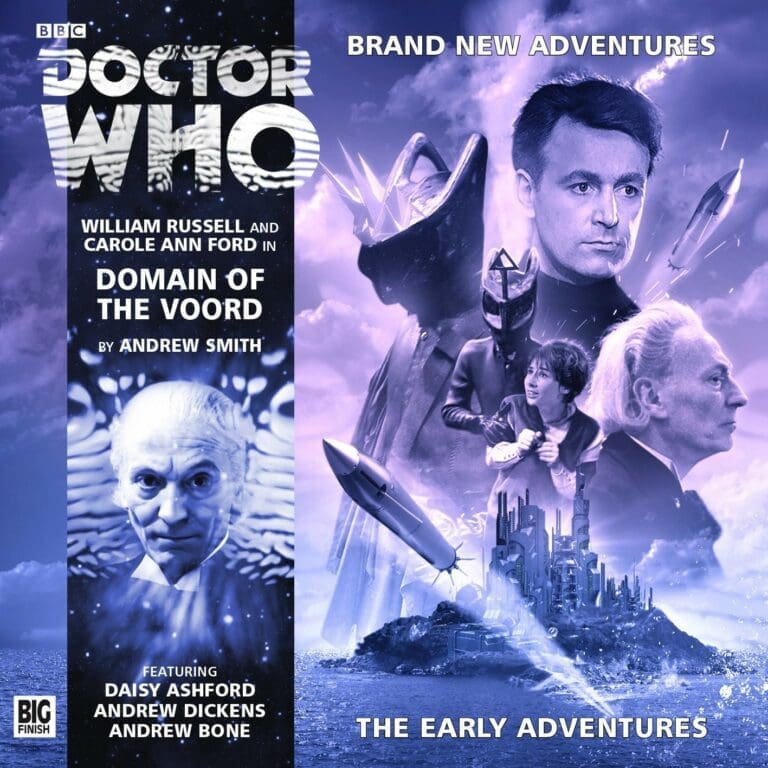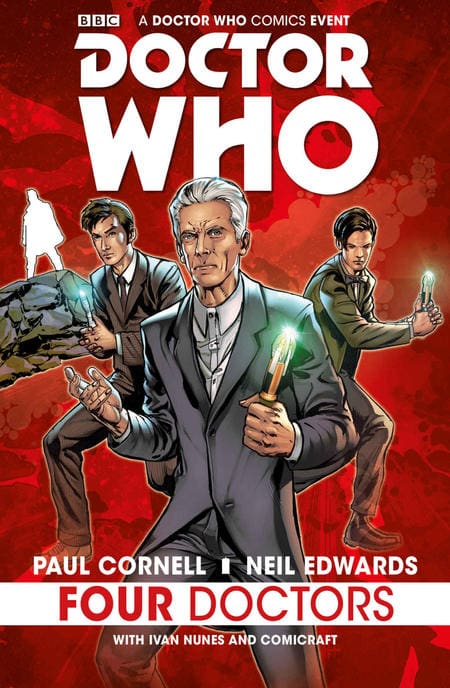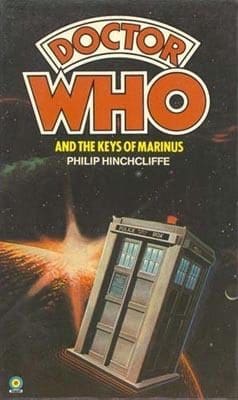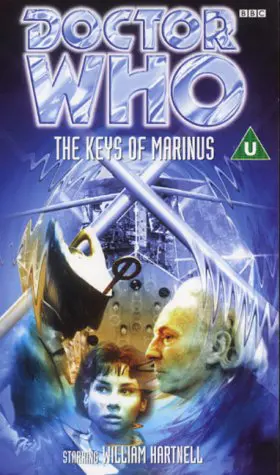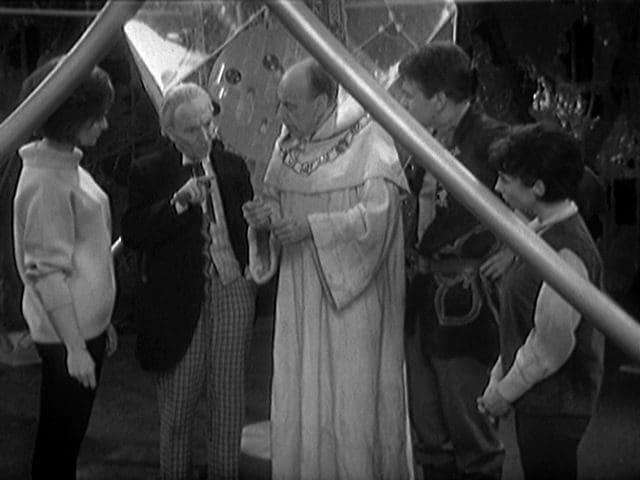
Classic Who S1 • Serial 5 · (6 episodes)
The Keys of Marinus
Reviews and links from the Community
This review contains spoilers
Review of The Keys of Marinus by 6-and-7
This one had its ups and downs; sort of inevitable when the premise involves hopping from one dangerous environ to another every episode of course, so let's take them one by one.
The Island: An intriguing premise, a mysterious landscape, interestingly deadly. Unfortunately Arbitan left me pretty cold. This machine mind-controls the whole planet into behaving according to its morals, and I'm meant to feel good about it? And based on what's happening around the planet, I really don't think it's done a very good job! The Voord have a fun design, but I have no idea what their deal is other than wanting the mind-control machine.
Morphoton: A really interesting concept for a dystopia, portrayed remarkably well for the '60s. The mind control stuff and the brain jars were really creepy, and I do love a bit of badass Barbara.
Screaming Jungle: Atmospheric, but doesn't cohere very well. The traps are kind of fun, I suppose, but the whole thing feels like a poorly-considered escape room. The ending with the attacking vines was great, though.
Icy Wastes: #VasorIsCancelled. All my homies hate Vasor, 0/10, worst villain of all time. A creep and a coward. What was I saying. Oh right the icy wastes. This was pretty good, some genuine moments of tension. Susan actually got to be badass for a bit, crawling over that icicle bridge.
Millennius: Courtroom dramas aren't really my thing, but the legal system of Millennius made me SO MAD I wanted to gnaw off my own leg (/pos). Really tense stuff, Ian was absolutely going through it on this one.
Island pt. 2: Still don't get what Yartek's deal is. What's he trying to do once he has the world mind control machine. Idk, this was fine, good villain defeat at the end.
Overall, I enjoyed this, but I kept feeling like they were trying to set up a point about justice and free will that never quite got made, and the Voord were WAY underused given that they were an attempt to recreate Dalekmania.
This review contains spoilers
Review of The Keys of Marinus by Dogtor
“Machines can make laws, but they cannot preserve justice”
C’est carrément du remplissage, et deux heures trente de “in ze boîte” ou “Mario bros” ne font manifestement pas une histoire. Mais allez savoir, j’ai quand même un petit faible pour The Keys of Marinus.
En fait sa plus grande force c’est aussi sa plus grande faiblesse. Il y a une variété dingue d’environnements aliens, d’histoires, ou de concepts, et chaque épisode redouble d’inventivité pour être différent.
Mais là où c’est à double-tranchant, c’est que l'histoire à côté n'a pas vraiment de sens, et ne se contente surtout que de sa quête un peu vague.
Bref, c’est fondamentalement pas terrible. Mais d’une certaine manière, ce Doctor Who n’a jamais été autant lui-même que quand Barbara a éclaté des escargots entre deux parties de Mario Bros ou Ace Attorney.
Review of The Keys of Marinus by greenLetterT
It's like they put the Crystal Maze into Doctor Who. Go to a new themed zone, find the key, escape, and then repeat ad infinitum. Enjoyable enough, although I don't think the death scenes were supposed to be as funny as I found them
This review contains spoilers
Review of The Keys of Marinus by Trench16
Keys of Marinus: 8.8/10 - I thought it was a great story. The anthology style of it was very interesting and made the story fresh each episode. The last episode was probably the weakest of them all as the Voord aren’t necessarily the strongest villains but the rest of the episodes being fantastic made up for that in my eyes. I loved the court scenes as well and Hartnell really got to shine in them.
This review contains spoilers
Review of The Keys of Marinus by IceAgeComing
For some reason; I'd forgotten how much I enjoy the Keys of Marinus. Before this rewatch I had it in my head as a below average story that dragged; with the court room stuff being slow. None of that is true - this is one of the faster paced 60s Doctor Who stories, especially in contrast to a lot of the early sci-fi shows in the series.
It's an incredibly ambitious story; in a way it feels like four separate stories to fetch each key with an overarching arc with the fetch to get the keys. I understand why this is not something that was done more often (it is expensive to need a whole new set of sets every week) but it makes this stand out very well.
The individual stories however are somewhat inconsistent. The Voord don't really stand out as villains (probably why they've never returned on TV since this story; despite being the second ever set of alien villains) and the opening episode is one bit that moves slowly; but George Colouris's portrayal of Arbitan is very good - especially for a single part guest character. The story in Morphoton is an incredibly creative idea that I'd love to see the new series return to - the TARDIS crew are immediately brainwashed into thinking they are in some lavish environment as part of a scheme to completely brainwash them into working for the brains that control the city; Barbara manages to accidentally prevent this which means that she sees right through things and is the star of the show in terms of ending their rule over the city - while Ian, the Doctor and Susan are completely under their control. One of the thing this story does very well in making a strong use of the support cast (helped by Hartnell skipped episodes 3 and 4 for a holiday) and this is a perfect example.
Episode 3 feels like filler - but at least more interesting filler than other stories. The design of the forest set is impressive considering that it probably was the size of a shoebox; although the story is primarily 'Ian/Barbara fall into traps, barely escape, rince repeat'. It's an old Doctor Who staple; but feels awkward here. The fourth episode picks up - this is the section of the story where Ian gets to shine with him single-handedly rescuing Altus and somehow convincing the burly tracker to accompany them to the mountains. Its not remarkable but fits in here.
Episodes 5 and 6 are great - as the story goes into pure courtroom drama. Ian is accused of murder and theft of the final key; and stands trial in a justice system where individuals are guilty until proven innocent. The courtroom scenes are pure Phoenix Wright stuff 40 years before that existed: the Doctor as defence attorney is great with the examination of Sabitha leading to the death of Aydan; and the deception of Kala comes across very well. It's very well put together; and makes you want this to have been a bit more of the overall structure of the story.
The end feels like an anti-climax: Arbitan is dead and a Voord is wearing his cloak in the worst disguise ever; and Ian gives them the fake key to cause the Conscious of Marinus blows up. I also like that Altos and Sabitha are not particularly exciting characters with some very... awkward acting: and the alleged romance between the two doesn't come across and that doesn't help with investment in the overall story arc. Susan is the one character in the main four that doesn't get a chance to shine - Barbara has the entire second episode and finding Susan in episode 6; Ian has the march through the mountains; Susan is not particularly strong in this which is a negative - I feel like her playing a greater role in the detective elements in Millenius would have been a good use of her.
Overall I really enjoyed this - in particular episodes 2, 4, 5 and the first half of 6. Its an ambitious attempt at doing a lot with a little and while it falters at times, I think it succeeds more than it fails plus I'd prefer this level of overambition to slow and safe.
Review of The Keys of Marinus by dema1020
I just don't care for this one very much. After a pretty strong run of introductory episodes, this one, in my opinion, really doesn't stand the test of time very well. I find the plot terribly boring, the aliens quite silly, and the quality varies quite heavily between episodes. There are some decent moments of tension I found early on but after a while it feels like the story really has nowhere to go, at least not until the Doctor gets to have some fun playing lawyer (probably my favourite bit in the whole storyline). Keys of Marinus drifts too heavily towards the standard sci-fi of its era, in my opinion, falling far short of the more brilliant moments in Doctor Who history. Really only recommended for those seeking to truly complete their Doctor Who experience. Their are far better stories from this era and worse, this can give you the wrong impression of what that era can be like, with a heavy focus on Ian while characters like Susan are left to flounder. Still, the story does have some decent moments with the Doctor and even the companions, and I don't hate it, either. You could do better, but to be clear, you could also do a lot worse.
Review of The Keys of Marinus by Rock_Angel
This story is just pure fun from from the start to the end and shows the complete night and day between how the Tardis team started and where it is now. More of this in the future please!!!!
Review of The Keys of Marinus by MMF294
this one was pretty fun
there are some points where the production is a bit ropey, especially in episodes 1 and 4, but the story itself is fairly good
i like the structure of this one, and i think having the tardis team be in a different location in almost every episode helps to keep the story from dragging
the voord have a neat design, even if it's unclear whether they were meant to be humanoids like the other characters at this point
the way they're talked about in the first few episodes seems to imply that they're people in suits, and yartek's face is visible through his helmet, but in episode 6 he refers to the other voord as "my creatures"
it's odd
i think the story could've been a little stronger in its condemnation of the idea of a machine that brainwashes the entire planet into obeying the law
episode 2 makes effective use of pov shots to make the viewer feel uncomfortable and on edge, although that might just be my autism talking
This review contains spoilers
Review of The Keys of Marinus by Joniejoon
The general hook is that several keys need to be collected by travelling to different locations. Since these locations each take an episode, it feels fair to take them as standalone episodes, as the narrative between them basically doesn’t exist.
The first is ‘the velvet web’ in which people are held under a guise of luxury and happiness, while being actually being poor and suffering. It is an interesting take and allows for some good moments with Barbara. It is generally intriguing, but the actual confrontation and consequences of destroying the illusion are left unclear, which is a shame. (7/10)
Next is ‘The screaming jungle’. This one is not all that interesting. Just a lot of wandering around the location. Some people are lost, then found again. Not all that different from the introduction episode. There are tidbits of interesting ideas in the actual screaming of the jungle and the scientific formula that gets used later on, but these don’t really get any time to shine. (4/10)
After that we get to ‘The snows of terror’. A cold, barren land. The group meets Vasor, a dangerous man, who is portrayed quite well and actually fooled me with his kindness in the beginning. After that it moves to a rescue mission in a cave which isn’t all that interesting. The highlight here is Susan climbing on a shaky ice bridge. Which honestly leads to a bigger point about her character: For now, I still don’t see Susan as pathetic. The character is often talked about as weak, even by the actress, but I think she gets the most direct action scenes after Ian. She can be screamy and weak, but often shows bravery and initiative when no one else will. Maybe these moments drop off later and will only leave the blubbering mess, but for now, I don’t feel like it is that black and white (hehe). (5/10)
We move on to “Sentence of Death”. As an Ace Attorney fan, this premise is right up my alley, although that first court session that lasted less than a minute made me laugh out loud.
The episode shines quite a welcome light on the first doctor, who we’ve missed for a few episodes. He gets to show his smarts, have some fun investigations with Susan and Barbara, and is generally a joy to see on screen. It also reinforces his growth quite well. A few stories earlier, he would’ve left Ian there without a second thought.
This is one of the few stories which focuses on the characters first instead of the actual location. It also gives them more to do than the last few stories. It’s a breath of fresh air after some aimless location scouting. (9/10)
The last episode rounds it off pretty well. Locking Ian away allows for the rest of the cast to get more screen time, and the conclusion to the murder was actually pretty clever. It also includes the first namedrop in the show, with the Doctor boasting he has met Poirot. After that we get a rather hasty resolution to the Voord and move on.
In general the story lacks cohesion. It has a lot of moving parts and by the time the end was reached, I had forgotten what the keys actually did. The individual parts have clever ideas, but the ones purely based on environment don’t always land. If the characters interact and react to the environment in interesting ways, it gets miles better. Let’s hope future stories see this too.
This review contains spoilers
Review of The Keys of Marinus by MrColdStream
🙏🏼62% = Okay = Skippable!
Thworping through time and space, one adventure at a time! This time: the quest for the Key to Marinus, creepy supporting characters, and bad disguises.
STORY:
The Keys of Marinus boldly tries a new concept for the show by setting each of the six episodes in different places, connected by one common narrative. It's an interesting approach, not used very much on the show since (and mostly in other Terry Nation-penned stories, such as The Chase, 1965).
Part 1 effectively establishes the alien setting by returning to the sense of mystery from Part 1 of The Daleks (1964).
Part 2 features a good idea with an execution that only goes halfway, but it's the concept that works the best in this story.
This is a very narratively flimsy story, with the framing narrative fairly weak and the separate smaller stories in each episode very uneven in quality. The Keys of Marinus shows some of Terry Nation's lazy qualities as a writer: he's starting to repeat himself in terms of plot structure and ideas (a pretty feat considering this is only his second contribution to the show!). We didn't need another sluggish cave-climbing sequence, for instance.
To be fair, Nation plays around with some interesting concepts and themes, such as mind control, pacifism, and distrust towards machines, that give the adventure a small narrative edge. I also have to give Nation some credit for cleverly writing the main cast members' vacations into the story by splitting up the group and focusing on each half in separate episodes.
Part 6 very hurriedly brings the story to a close, mostly because half of it deals with the fallout of the previous episode, leaving the ending of the serial very unsatisfying.
POPULATION:
Here, Susan is at her peak level of irritation and uselessness.
Yartek is a trashy villain. He's supposed to be the big bad, but he doesn't show up until the end of the last episode and never poses a real threat. Who thought that disguise would fool anyone?
The Voord seem like a desperate attempt at recreating the success of the Daleks, and even though they look (slightly) cool, they remain too underdeveloped and underutilised to truly work.
PRODUCTION:
The sets and model work are the weakest on the show so far, probably because they change for every episode, so they look either overly simplistic or not very convincing.
ATMOSPHERE:
Part 3 is sluggish and feels like a very hastily put-together filler episode with ideas that don't come alive convincingly with the allocated resources. There's a whole "fake it till you make it" sensibility over that entire episode that makes it awkward to watch.
Part 4 has the strongest atmosphere; it's dark and unnerving and offers one of the more disturbingly memorable guest performances in Who history. These days, they would never create a character as brilliantly unnerving as Vasor, yet he is the epitome of terror and the sole genuine highlight of the narrative.
The second good episode is Part 5, which reinvigorates the story by essentially speeding through a courtroom drama (the first of many in the series!) and allowing William Hartnell to shine as Ian's defender. The episode showcases some qualities of Hartnell's Doctor that would later become defining features for almost every incarnation of the character.
RANDOM OBSERVATIONS:
This is one of the better stories for Hartnell's famous line flubs, such as the golden "If you would have had your shoes on, boy, you could've lent her hers!"
FINAL THOUGHTS:
Although Terry Nation offers an intriguing new concept filled with a variety of locations, characters, and ideas, along with a few highlights, its uneven pace and filler elements mostly let The Keys of Marinus down.
This review contains spoilers
Review of The Keys of Marinus by deltaandthebannermen
The Keys of Marinus is one of those stories which, whilst not the best example of Doctor Who, is a fun romp with some interesting ideas and a good example of how the show was testing its format’s limitations right from the very first season. What sets this story apart from others in the season, and to some extent the majority of the entire series, is that is swops locations every episode. Each one is like a separate adventure in its own right. With different sets, actors and to some degree, plot every 25 minutes the overall story is something of a mixed bag. Some sections work better than others and there are certain episodes I think could have been good four parters with a bit more development. There are other episodes which are probably best forgotten.
Essentially, The Keys of Marinus is five stories: the Voord part which frames the adventure; the Morphoton episode; the jungle episode; the snowy episode; and the CSI: Millennius episode. My favourite is easily The Velvet Web and I would happily watch a four episode version of this. Some more development of exactly what the ‘brains’ are hoping to achieve through their mind control and a slightly less ‘easy’ denouement would easily fill out a couple more episodes and the insertion of extra characters – particularly others who have broken the conditioning and are rebelling against the ruling forces – would easily expand the one episode. Let’s face it, there are plenty of Doctor Who stories with less plot than that!
The direction of this episode with the point of view switching between Barbara and the others is well executed (even if John Gorrie isn’t massively happy with his work on the commentary). I adore the part where Hartnell and Russell admire an empty room with a chipped tin mug as if it is the cutting edge laboratory they believe they are seeing. I also think the ‘brains’ of Morphoton are a fun villain/monster and, as I say, could easily be developed further. (I also can’t watch this episode without thinking of the legendary Outpost Gallifrey/Gallifrey Base thread which posited an alternative history of Doctor Who in which the TARDIS crew were joined by Steve the Morpho Brain after the events of this story…!)
This episode also has a good commentary (I watched half the episodes with commentary and half without) and has an amusing section where John Gorrie praises Carole Ann Ford’s performance and the character of Susan and Ford swats him away with a cursory ‘I thought the part was rubbish’ retort (I paraphrase, but that was the general gist).
The Millenius section of the story is also very good and Hartnell is clearly having a whale of time (obviously refreshed after his two weeks off previously). The central murder mystery is okay, but it’s the performance of Hartnell both in the court, and reconstructing the crime (by bashing Barbara over the head with his stick) which is the most entertaining. There are a few dodgy elements, such as Kala, one of the conspirators, giving herself away by letting slip a detail about Susan’s kidnap that she would only know if she were the kidnapper, but overall it’s a strong section to a patchy story.
The Snows of Terror is okay: Vasor the trapper is a chilling creation, particularly in his obvious desire to assault Barbara, but the episode is let down by lots of ‘brrrr it’s cold’ acting (why Altos’s legs don’t drop off from the cold is a mystery, seeing as he only seems to be wearing a pair of tight underpants below his massive cloak) and the most Monty Pythonesque of knights seen in the series. The Ice Soldiers are a very weak link in the story and when one trips and falls down a crevice it does feel like we’ve entered silly land (although if it’s a good enough death for Eldrad, I suppose we can’t criticise it too much).
My least favourite part is probably a toss up between The Screaming Jungle and the final Voord-related section of the final episode. The Screaming Jungle suffers from some dodgy effects work and some extremely dodgy acting from Edmund Warwick (yes, he of the Robot Doctor from The Chase). The most ridiculous aspect of The Screaming Jungle are the traps – from the obviously stagehand hands of the statue, to the slow moving axeman and spike trap. Jacqueline Hill’s acting is oddly hysterical in the scenes where the jungle is encroaching on the laboratory and Ian is portrayed as being particularly thick – he’s a scientist in a laboratory who doesn’t even consider the possibility that the code he is given by Darrius is a chemical formula (even if it isn’t a real world formula). The other aspect of this episode which doesn’t make sense is the whole trap bit. Darrius says that only he and Arbitan knew about the traps so would warn anyone legitimately retrieving the keys. Therefore, why didn’t Arbitan warn his coerced key hunters? Let’s assume he forgot due to his desperation, the loss of his daughter, the presence of the Voord and the speed with which the TARDIS crew disappeared off when Barbara zipped off unexpectedly. This doesn’t explain, however, why neither Sabetha or Altos – both sent by Arbitan to retrieve the keys, seem to know about it or bother to warn Barbara and Ian.
The Voord sections of the story are also rather underwhelming. The first episode is okay and the discovery of the submarines and dissolved Voord are intriguing. Unfortunately, the rather clumsy gait of the Voord prevents them from being a particularly realistic threat, although I am a fan of their design, to some extent. The best depiction of the Voord I’ve ever seen is a piece of artwork by Colin Howard which was included in the 30th anniversary calendar. It showed the Voord sans rubber suit and was an imaginative extrapolation of what they might look like under the latex. Yartek (leader of the alien Voord) only appears in the final episode and he isn’t going to enter the top 10 of any fans ‘best villains ever’. He’s fairly non-descript (Stephen Dartnell isn't helped by having to act through a rubber mask) and a little too mwa-ha-ha for my taste, particular when he inserts the fake key into the Conscience machine. And that’s another scripting goof. Altos says that, to begin with nothing will happen but when the machine gets going, so to speak, the fake key will break under the strain and the whole place will explode. When Yartek inserts the key, the Conscience (and pyramid) immediately explodes, contrary to what the dialogue has just established!
There are two main things which let down The Keys of Marinus – one is vaguely loveable and one is unfortunate. The loveable let down is the number of fluffs and goofs, particularly in the first episode – visible stage hands, cardboard Voord, actors entering scenes too soon and lots of fun Billy-fluffs. Mistakes seem less frequent in later episodes, but the unfortunate let down is present throughout – Sabetha and Altos. John Gorrie is full of praise for the two actors, but seems to be basing most of this on the fact they ‘look the part’. Their acting is horrible though – stilted in some cases, dull in others – particularly the final episode where, tied together, Altos bemoans the fact he cannot defend or protect Sabetha with the least amount of conviction he can muster. I also don’t buy the vague romance supposedly going on between them. They don’t spend a huge amount of screen time together and when they do they tend to be line feeds for the regulars. Barbara’s melancholic ‘I will miss them’ as she steps into the TARDIS would be more believable if they were interesting characters.
Another fault of the production is one I hadn’t found a problem, but clearly was for set designer Raymond Cusick. A short interview on the DVD reveals that he hates pretty much all of his work on this story. It’s a shame, because I didn’t think it was too bad. The cities of Morphoton and Millennius are fine, the court on Millennius is quite impressive actually, particularly in its size. The ice caves are fine, bearing in mind the budgetary restrictions and only Arbitan’s pyramid is disappointing, mainly for being a little dull (although the Conscience machine itself is quite good).
For all these downsides, The Keys of Marinus is a story I can't help but love. There's been some great work extrapolating the Voord in the expanded universe of audio and comics and the story does remain interesting throughout because of the regular change of setting and some really good story ideas.
External Reviews / Opinion pieces
Doctor Who: Alternative Seasons - Season 1: The Beginning
Submitted by Joniejoon
c48,000,000 BC: The Keys of Marinus – A History of the Universe
Submitted by deltaandthebannermen
Melting_Snowman's Review
Submitted by Melting_Snowman
Community Ratings
(Updates coming soon:)
Add the last X members who rated it here
Add number of Favs, and who they are, here
